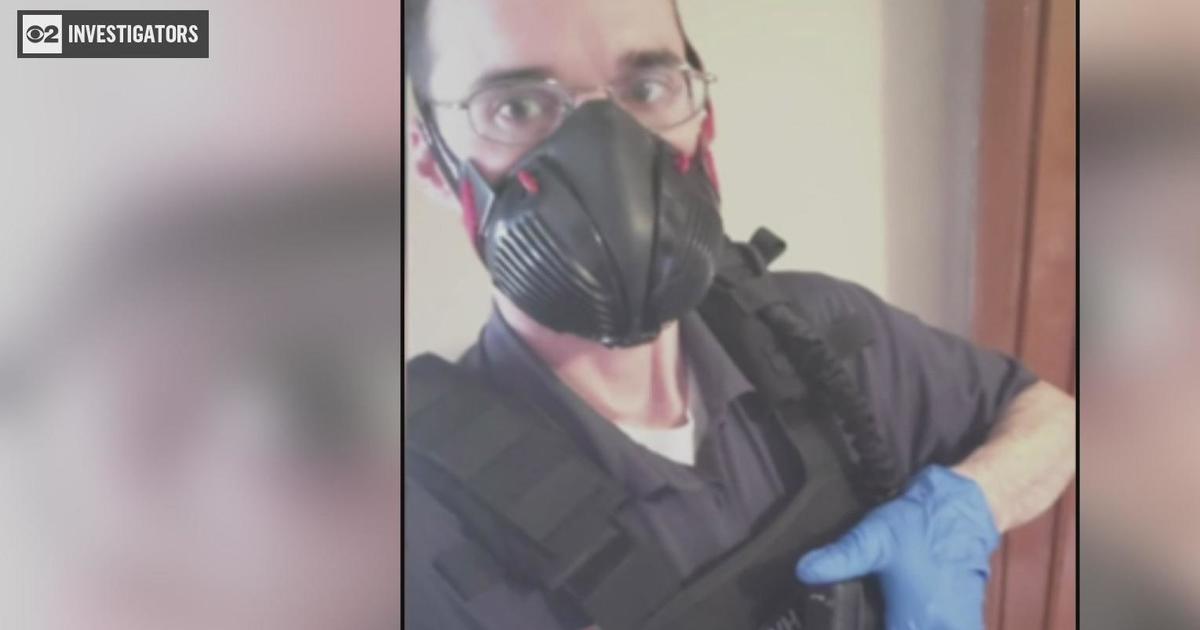2 Investigators: Pension Fund Demands Overpayments Back, With Interest
(CBS) -- In growing numbers, retirees are getting hit with shocking news: Through no fault of their own, pension fund mistakes resulted in overpayments they must pay back with interest.
As 2 Investigator Pam Zekman reports, the case of what happened to more than 500 hundred retired members of the Sheet Metal Workers Local 73 is now prompting calls for new regulations to protect retirees.
"I thought I was going to have a heart attack," says Ed Cochran.
That was his response when he opened a letter from his union pension fund last May. Cochran has depended on his pension since 1995.
"This letter stated I was overpaid over $54,000," Cochran says. "And they wanted an additional $42,000 in interest for a total of $97,000."
That's right -- interest.
In Darrell Johnson's case, the pension fund demanded $13,000 in interest.
"For them to turn around on their mistake and say, OK, we made a mistake, you must pay us interest for our mistake, well, that's outrageous," Johnson says.
Under a compliance plan the fund presented to the Internal Revenue Service last year, the monthly checks of the overpaid retirees were reduced to the corrected amount and by 25 percent more toward paying the fund back.
"My pension took a 40 percent hit on July 1," Cochran says.
Worse yet, the pension fund plan requires both men to pay a lump sum up front. In Cochran's case, that totals $66,721.
"I wasn't going to live long enough, according to their calculations," he says.
According to the letters sent to retirees, the board of trustees retained a nationwide employee benefits consulting firm that specializes in actuarial matters to conduct an audit.
Records show that the audit found that 814 retirees were underpaid by about $6 million dollars and have been made whole. Another 589 retirees were overpaid $5.2 million. All of their errors were attributed to "accidental and inadvertent" pension calculations made by prior pension fund employees between 1974 and 2004, under prior administrations.
"The Sheet Metal Workers example is the worst example we've seen of this problem," says Karen Friedman, executive vice president of the Pension Rights Center based in Washington. "It's going back 30 years."
She adds: "The first question we have is what took you so long to figure this out?"
And apparently about 8 more years to notify retirees.
The pension fund notification letters say federal laws require the fund to get back the money back. That's true. But the pension fund letter also says the IRS requires that they recover the money from the retirees.
Attorney Tim Kelly, who represents some of the retirees, disagrees with that.
"No. The IRS is not forcing them to do this," Kelly says. "They choose to use this method to collect the money back. They are the ones who suggested to the IRS that this is the way they were going to collect the money."
"I think it's absolutely false. It's deceptive," Kelly adds. "They certainly should not be asking for interest from the time they've sat on the mistake."
Seventeen years for Ron Kosinski, adding $44,525 in interest to his overpayments. And at 79, the pension fund said he's not expected to live long enough to pay off the total due -- $105,507 -- so the fund is demanding that he pay $79,000 up front.
"It really has got me upset," Kosinski says. "It's a hardship."
Now, some of the retirees are planning to sue the pension fund, claiming the board of trustees breached its fiduciary responsibilities by failing to find and correct the mistakes in a timely manner.
And the Pension Rights Center is planning to push for new regulations to protect retirees.
"We believe there should be a law that caps the number of years that a pension plan can go back to recover this money," Friedman says. "And we believe that should be about two to three years."
Meanwhile, pension experts say there are other ways for a pension board to replenish its fund.
Attorneys for the union and the pension fund declined to answer CBS 2's questions, saying this is an ongoing process. The process has included allowing retirees to file an appeal for a financial hardship waiver.
If their appeals are denied, they can file a lawsuit, which some retirees say they are planning to do.
If you need advice or legal help dealing with pension overpayments or underpayments you can contact the following organizations: The Pension Rights Center; Illinois Pension Assistance Project (888-425-6067), which provides free legal advice; and the U.S. Department of Labor (866-444-3272).



